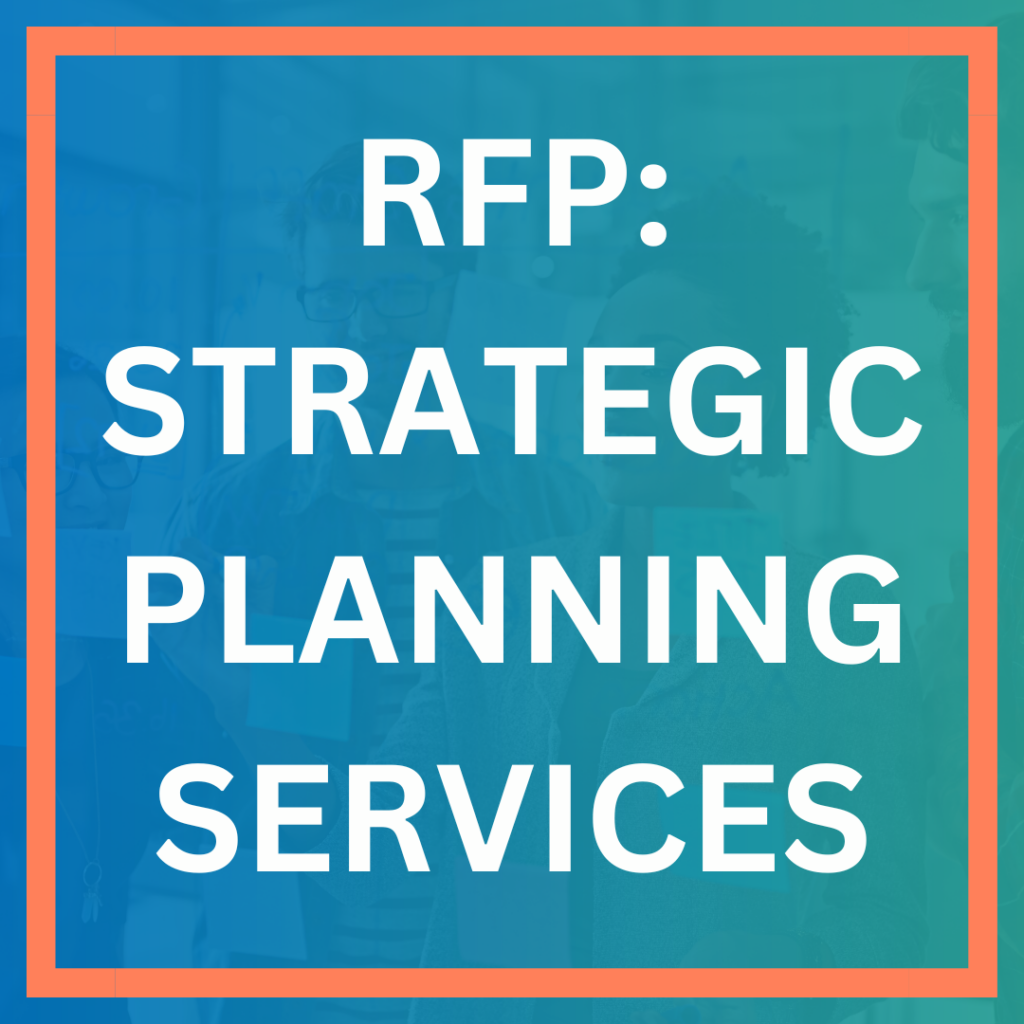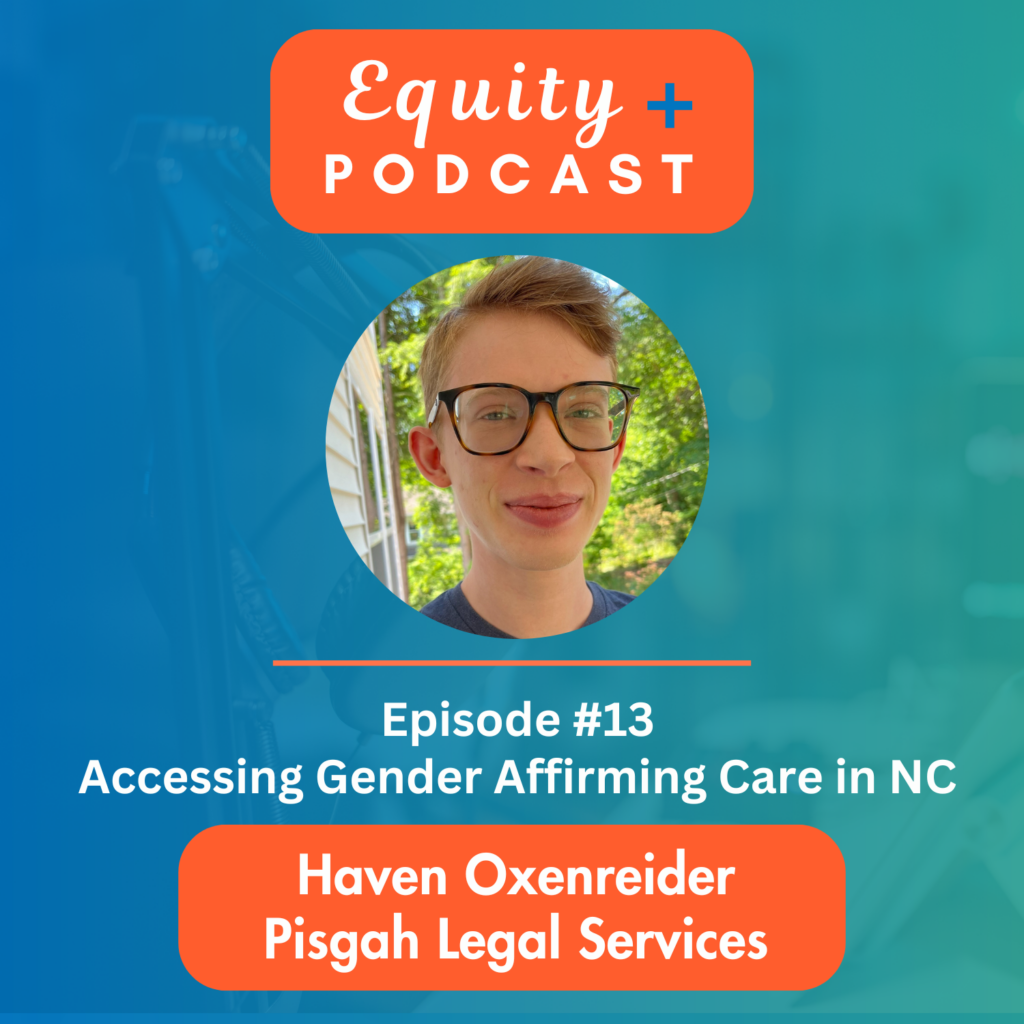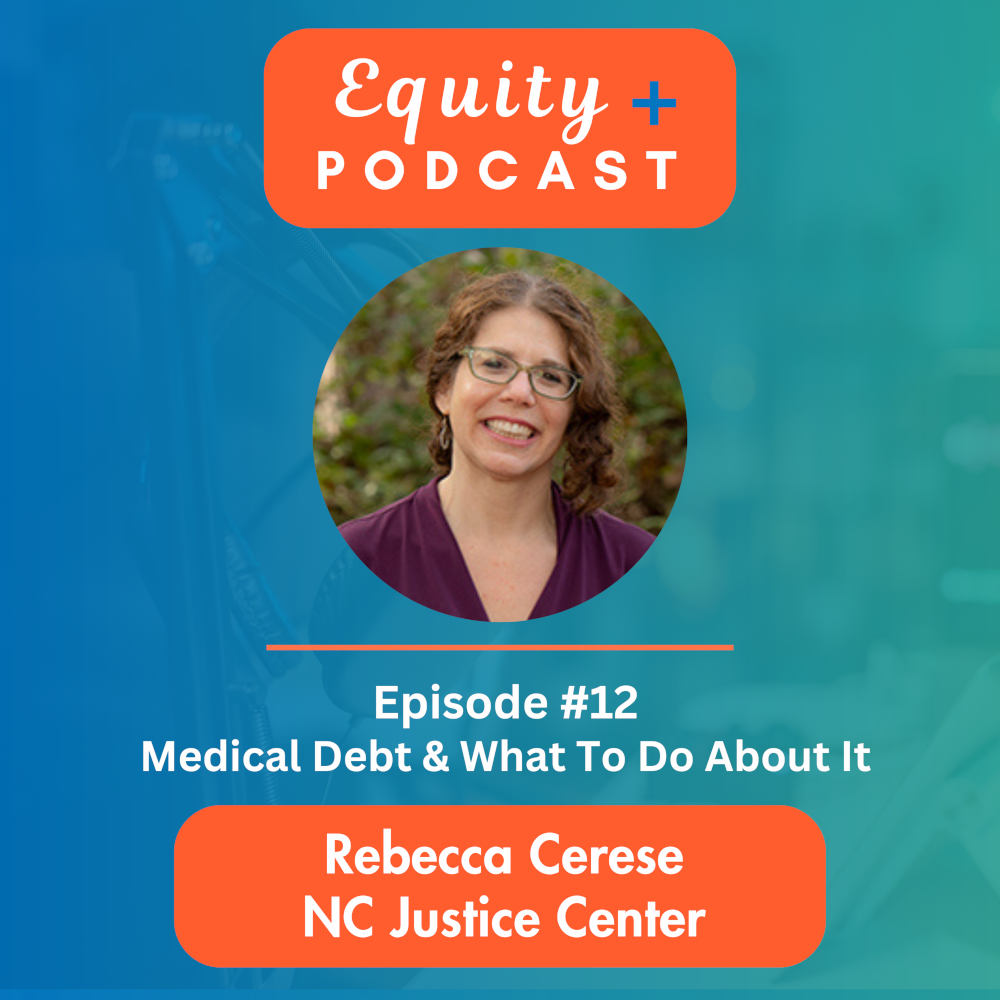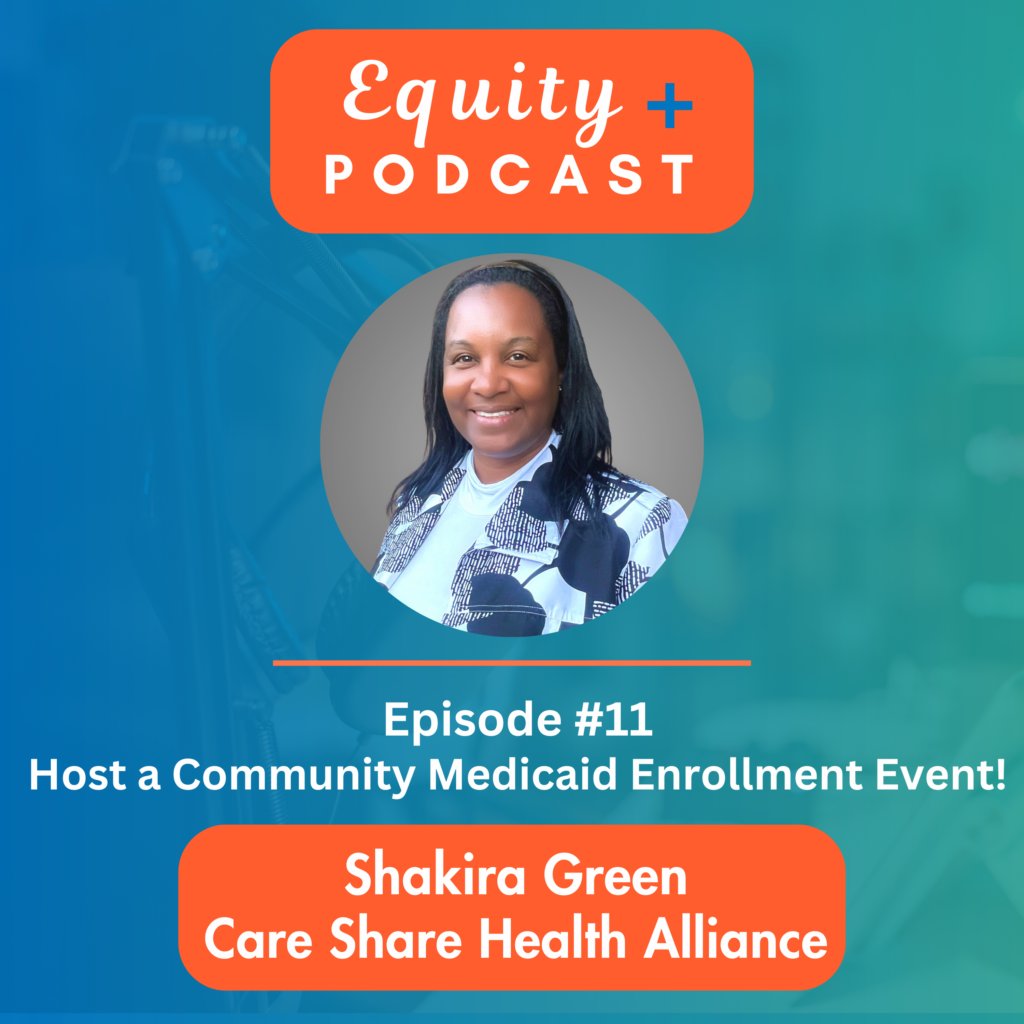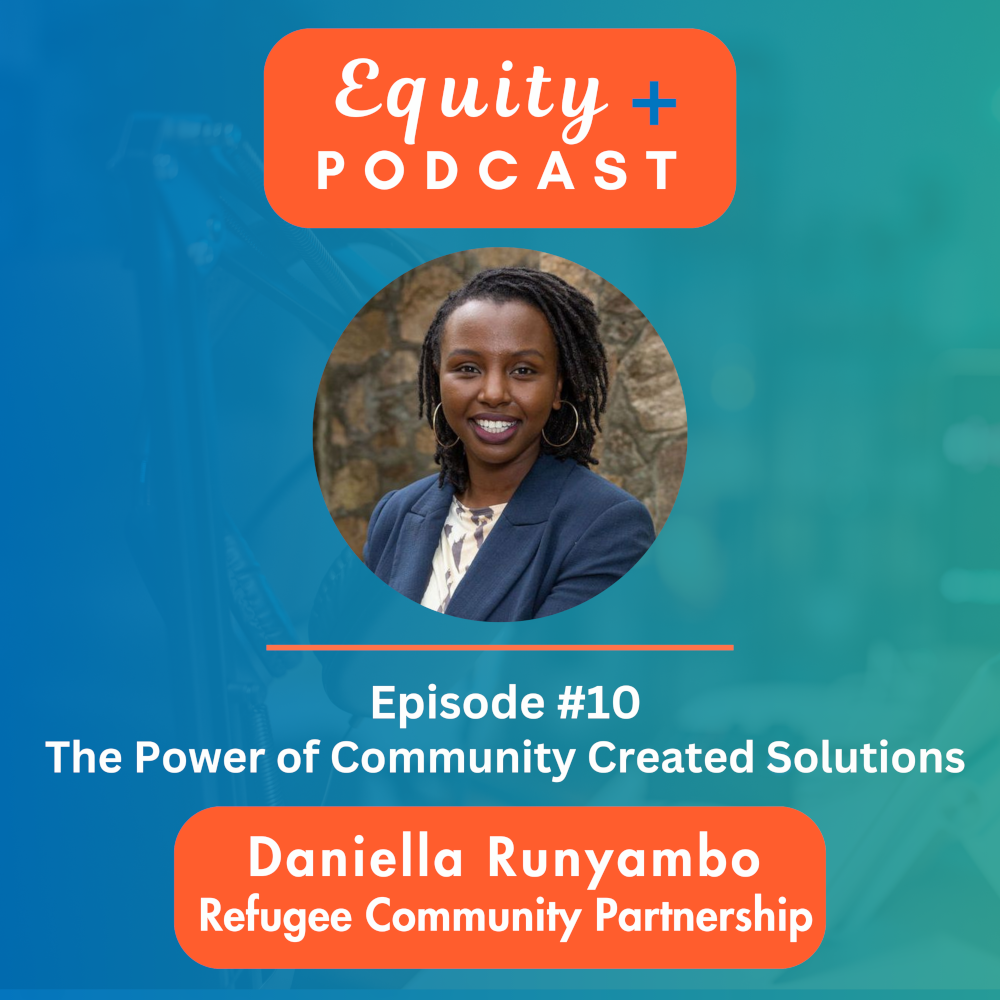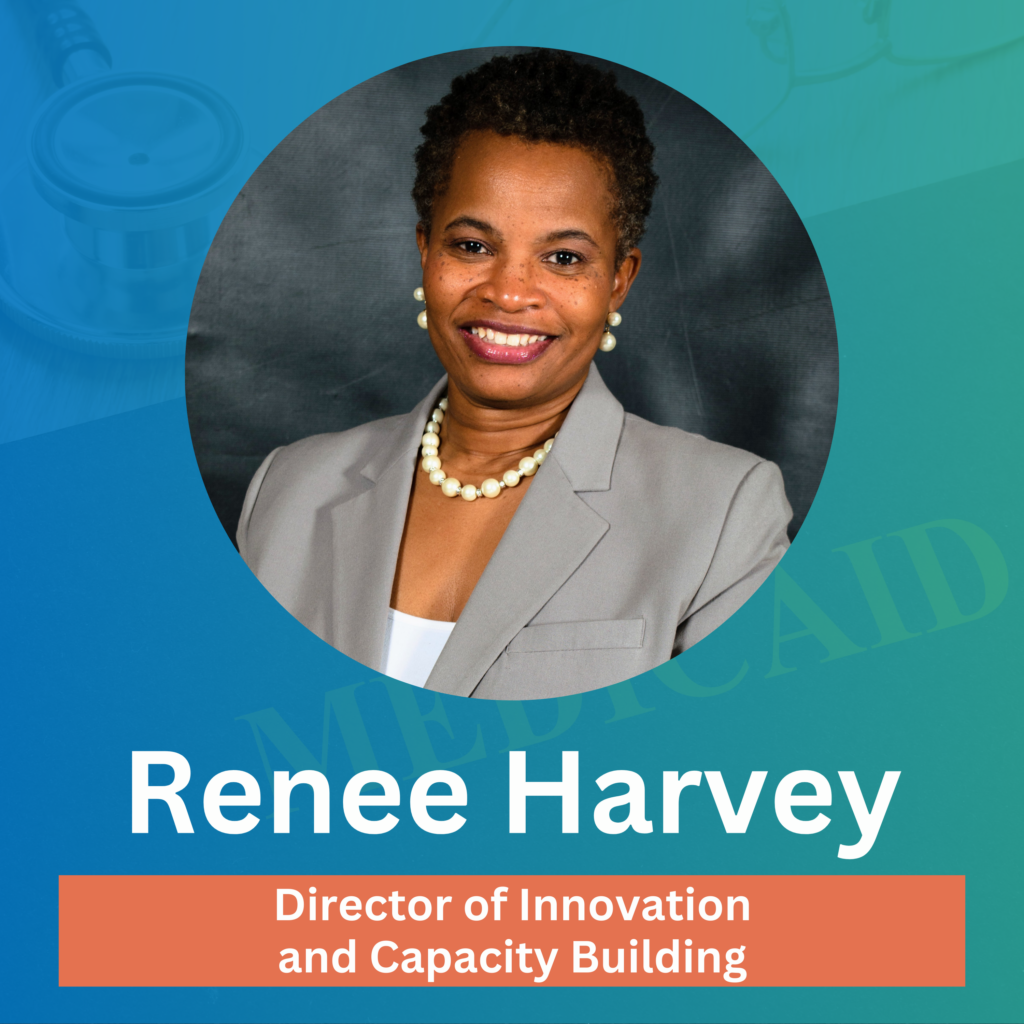Care Share Health Alliance is excited to share a new series of articles on North Carolina’s BIPOC leaders working in the health equity space. Our first entry features Chester Williams, founder and Chief Empowerment Officer of A Better Chance, A Better Community.

A Chance, a Better Community (ABC2) is an organization serving Northeastern North Carolina that connects rural communities with resources to activate youth power and advocate for realistic solutions and healthier lifestyles.
Chester Williams, Chief Empowerment Officer and founder of ABC2, says the idea for the organization originated in a journal assignment he was given in the eighth grade that asked him what change he’d like to see in his community. “I literally wrote A Better Chance, A Better Community,” says Williams, “but more so, allowing young people a part in community change.”
Growing up in rural northeastern North Carolina, in the small town of Enfield, Williams was taught a traditional road to success as a young man: focusing on school to get into college and start a career – a type of success that meant leaving his community.
“That was the plan, and I followed that plan, but I didn’t understand the vision that I wrote down was something that was going to come back to me later on in life,” he says.
Williams graduated from Southeast Halifax high school as an honor student and went on to A&T University where he majored in mathematics and professional theater, with a minor in business. After graduation, he spent time in Switzerland working with a math symposium, then returned to NC to work at Halifax Community College, where he started their math lab. He then went on to pursue a master’s degree in mathematical physics at Indiana University (“Yes, I am a nerd,” he laughs), afterward teaching in the Indiana school system for a time.
At the end of 2011, Williams’ grandmother became ill, so he returned to Enfield to help support his mother. Now back in his hometown as an adult, he began to think about what it was he really wanted to do with his life.
“To be in a space with family and reconnected with the home was a very interesting time,” says Williams, “Because me leaving Enfield was to get away, because I felt there was nothing here, the rural community was boring, but, then coming back in 2012 was a different perspective. I saw the hidden beauty in the gems of Halifax county that I took for granted as a child because I didn’t have access or exposure to it.”
Williams especially saw the value in Halifax county’s youth, although he initially didn’t have the reception from them he might have hoped for. He recalls the reaction from students at an alumni day he attended at his former high school along with some of his peers who had also been successful in their education and careers, becoming doctors and lawyers.
“I don’t want to say the students rejected me, but they could not believe that we actually came from Halifax county or that we were a product of that school.” Williams recalls, “I was like, ‘I come from here!’. I used to use ‘I is’, ‘you is’ those things that we say, and I walked the halls, I know about the snakes in the lockers, and they were just so amazed that someone from here can have these experiences that I’ve had.”
That day sparked the creation of A Better Chance, A Better Community. “From there I identified five students to come together to start ABC2,” says Williams, “It was a way of giving the voice to them that I wanted to give to myself as an 8th grader.”
“Sometimes in a rural community, we’re looking from a hopeless lens vs a hopeful lens,” he explains, “so I wanted to be that catalyst to show to the hopeful, ‘do not be doubtful’, because you may not have the experiences, but I am a result of the experiences that I was afforded. I too have the same experiences of being in a rural community not having assets, having to go the extra mile to do the extra work in school, because I didn’t have that strong foundation in education or I wasn’t exposed to a lot of things, so that was important for me to bring that back home.”

The first area the ABC2 youth decided to work on was agriculture. So, they went on field trips to different farms and came up with the idea for a raised bed garden in the town of Enfield, over the site of torn out building. They grew onions and peppers in three raised beds and turned the abandoned plot into a town conversation piece.
“It grew and the town adopted the town square.” says Williams, “The youth saw that within their idea they sparked ideas and change in others. They saw it become part of the town culture, and even now they use it for Christmas tree lighting, and a place where they have farmers markets and events. They still feel pride in themselves for sparking that.”
ABC2 saw the success of their first project and began to implement the same type of work in other communities. Over time, they identified key areas they wanted to address: healthy foods, active living, and civic engagement. The organization is one of only two youth group councils in the state, and has also been involved in work with climate justice, party at the polls, and census and redistricting efforts.
“We take students or young people where they are in their passion and provide them the support and the resources to turn their passion into community change,” says Williams.
He recalls a young woman name Shaquesia who ABC2 helped to achieve her passion. She was one of the first five members of ABC2, a class valedictorian with a passion for cooking and baking who wanted to become a chef. Initially, she was not supported by her family, who were concerned about her ability to support herself.
“That’s not one of those common occupations that we talk about in rural communities where you can make a living,” Williams explains.
However, with the help of ABC2, she was able to get her parents on board with the idea of her attending Johnson and Wales in Charlotte, NC. Williams saw her again in 2017 when ABC2 hosted an event on their community farm and Shaquesia registered as a vendor with her very own food truck. The first thing she did when she arrived was to give Williams a hug.
“She said it was because of you. You gave me the purpose and the passion to believe in myself that I could be a chef”, he recalls, “And today I’m a chef because of you and ABC2. When everybody else was telling me no, you told me yes and you provided me the support and the resources I needed’
William remembers at that moment, “It became real for me that we’re impacting lives”
Not only does the type of youth-led community change undertaken by members of ABC2 inspire young people like Shaquesia to strike out and pursue their dreams, but it also helps them develop a deep connection to their rural community that encourages them to want to stay there.
“So they’re not leaving how I left here,” says Williams, “feeling hopeless, feeling disappointed, feeling like a failure leaving my community where I had to go somewhere else to find happiness.”
He tells the story of another ABC2 member who ran for school board at the age of 22, “He was freshly out of school, so he still had a perspective. He didn’t think he would win, but he ran, and he won. That was passion for us, that you can be young and run for office and be civically engaged. He’s still serving as a board member, and now other young people are thinking of running for office.”
However, it’s not always been easy to change the culture of a rural area. Williams admits that one of the challenges of working for change in the town where he grew up is that it’s sometimes difficult for the adults who knew him as a child with to see him as an equal.
“The intergenerational thing is real,” he says “The older generation are traditionalists, they don’t want to give up power, so I’ve found that struggle there that you were supposed to stay in a child’s place and wait until your turn. That’s a challenge for a lot of us young people in rural communities as we begin to come into our leadership and want to make change.”
Part of ABC2’s role is to change that narrative and to demonstrate how having the experiences and expertise of young people at the table can be a part of solving community issues. ABC2 is also intentional about having youth members take leadership roles in their organization. For example, during their weekly Northeastern North Carolina Connections meeting a young person has always been the facilitator.
“A young person leading the conversation, guiding the conversation, adding to the resources, has changed the whole dynamic.” says Williams, “Now they respect young people. Now they see, wow, we need more for young people. How can we get young people? But also understanding how to support other organizations and support young people and their voices without tokenizing them.”
Williams’ passion for empowering youth may stem from his own propensity for leadership roles at a young age. In high school, he was junior and senior class president, and even staged a sit-in at the principal’s office when administrators were making decisions the students didn’t like about their prom or threatened to take away their senior trip.“Now that I look back, I was a natural leader because I love people,” he says, “I love helping people find their own purpose.”
He describes his leadership style as focused on shared leadership, having multiple voices and representation at the table to get a full perspective on the issues (or, as Williams, calls them: opportunities), with a desire to, “Understand what our assets are that make us strong, build a strong foundation and then understand what those opportunities are and how do we go after them.”
Of course, like all leaders, Williams has had his share of challenges. Speaking specifically on challenges he has faced as a Black man, he says there was a learning curve for himself when implicit bias showed up in his interactions with others, based on their expectations of who and what success looks like. Sometimes, when people had only heard of his work, or not met him in person, they assumed he was White. “Then when they see I’m a black man,” says Williams, “Then the question is, ‘How did you purchase a school?’ Or ‘How did you start your own nonprofit in Halifax county?’, like a black man can’t do that.”
When asked what advice he would give to other BIPOC leaders, Williams says it’s the same as what he gives himself every day, “Be open, be honest, be transparent. Never deny who you are and your experience for others, because it’s not just for you and your people, it’s for everyone.”
“We’re in an opportune time now where we are setting the standard, setting the curve of what it means to be Black, and it doesn’t have to come from the place of hurt that we’ve experienced in the past, but of a place of being champions to show people how we as Black people want to be recognized and treated. So it’s about being accountable to ourselves and to our community.”
There’s also the challenge of going against the stereotype of what a person who is a product of an underserved, rural school system like the one Williams attended can accomplish.
“It’s been a learning curve for others to see the potential,” says Williams, “because when we talk about Halifax county schools, and say that it’s one of the lowest performing schools in the nation, but yet some of the product, like myself and others, people see us and think ‘you can’t be from Halifax county!’ Yes we are from Halifax County Schools. So stop trying to tell our stories for us and let us tell our stories ourselves”
However, Williams says he’s embracing these struggles because of the impact he sees being made by ABC2, “It’s a learning curve on both sides. It’s been awkward in the beginning, but I’m leaning into it now that I understand and we’re changing people’s perspectives.”
It’s now been 10 years since founding of ABC2. After a decade of leading the organization, Williams believes that the young man who first wrote about “A Better Chance, A Better Community” all those years ago would be proud of what it’s accomplished.
“The 8th grader in me is pleased.” Says Williams, “He has a voice, but he also gives that voice to everybody else. Young people’s voices are here, and they’re being recognized, and they’re able to make positive community change in a valuable way that’s meaningful to the community, but also meaningful to themselves, so that they are proud of where they’re from.”
Not only does Williams see young people as the future in rural communities, but also in the organization he founded, “Young people are really leading the organization. Yes, I’m the CEO, but I’m actually at a point where I’m ready to step away and let ABC2 really truly become its own. I think this year is the next level, and our young people are taking it to the next level.”
“I gave birth to something to the community, and my baby has grown and my baby is about to be a preteen, and I just amazed at how it has evolved even beyond what I put on paper, so I’m proud of it and I’m ready to see it grow and blossom into what it truly can and will become.”
To learn more about the work of ABC2 and CEO Chester Williams, visit https://www.abc-2.net/



